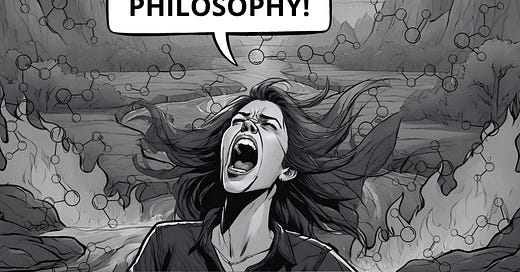Day 4: The Theology and Science Divide
I can see now that there is a divide between theology and science, and it's called philosophy, or rather the lack of it.
For the last ten years, my work has been focused on dispelling the faith and science conflict myth. “Chemistry led me to Christ!” I say to audiences when I speak. “Science is the study of the handiwork of God!” I tell hesitant chemistry and physics college students. I am proud of my book Particles of Faith: A Catholic Guide to Navigating Science. It’s provided me with the opportunity to speak to thousands of people. “Goodness,” I say, “there is no faith and science divide.” I tell myself I’ve got it all figured out. Just pray the Creed. I believe in God the Father Almighty, Creator of Heaven and Earth. Come on, atheists. Can’t you see it?”
But philosophers, both Catholic and atheist, side-eye me. No, it’s true. I’m not being over-sensitive, and I don’t think they are being supercilious. I could tell that I have been jumping over a bridge I ought to be walking slowly across.
It isn’t funny anymore to say I am forever a recovering materialist. I knew it wasn’t going to work to keep brush…
Keep reading with a 7-day free trial
Subscribe to GOD & ELEMENTS to keep reading this post and get 7 days of free access to the full post archives.





